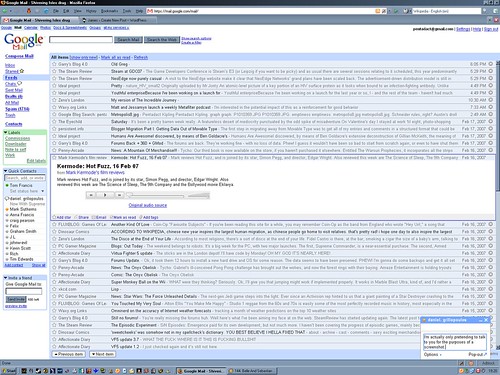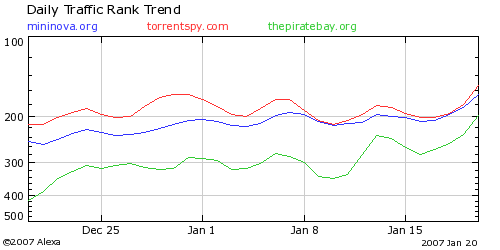TOM FRANCIS
REGRETS THIS ALREADY
Hello! I'm Tom. I'm a game designer, writer, and programmer on Gunpoint, Heat Signature, and Tactical Breach Wizards. Here's some more info on all the games I've worked on, here are the videos I make on YouTube, and here are two short stories I wrote for the Machine of Death collections.
Theme
By me. Uses Adaptive Images by Matt Wilcox.
Search
This Is Taking Ages
I had to explain the internet to someone once, not in terms of how it worked, but in terms of what it does when you start your browser. Which is, of course, nothing. You can’t even really browse it – there’s no grand index, no logical categories and no overview. It’s a derranged oracle that refuses to answer some of your most basic questions and overwhelms you with depth and insight on the most trivial ones, and the only way to tell between the two types is- actually, I haven’t found it yet. I thought at the time that this person’s expectations of the net were funny – to just start it up and have it come to them – but in fact that’s almost exactly how it works now.
I tend to jump on bandwagons as soon as Google starts driving them – search never made much sense to me with Alta Vista, Hotmail was – still is – a mockery of real e-mail, chat feels clunky and irritating in a separate application, and it wasn’t until I tried Google Reader that it clicked, and I suddenly saw the point of RSS feeds. And every one of these is now poured down my brain-gullet (eyes, I guess?) when I start my browser: they’re all part of Gmail. Communication – both realtime and turn-based – takes place entirely on that single page, the things I want to read are delivered to my pigeonhole, and anything else I need can be typed into that little white box.

The feed-reader integration is actually a hack, but it’s one made by a Google engineer who works on Reader, so it’s a fair functional facsimile of something they evidently want to do soon. Soon too, I’m sure, there’ll be a box underneath Labels there that tells me what I’ve got going on today and tomorrow according to Google Calendar, my next most-used site. And the Compose link won’t be restricted to writing e-mails, I’ll be using the full in-browser word processor Google Docs already provides, with revision histories, collaboration options and exporting to other formats. In other words, the dense, juicy Google particles of the internet universe have given it just enough total mass to suck it all back together into one time-dilating Big Crunch, rather than expanding endlessly and hopelessly from its explosive beginning. For people like me, at least.
The other big change since I was asked that question is piracy going mainstream. When a popular movie/TV/game pirating site Iso Hunt went down for a few weeks recently, the diverted traffic to the other main sites – the ones that sprung up from Suprnova’s grave – pushed three of them into Alexa’s hallowed list of the 200 most-visited sites on the planet. Publishing companies were disastrously, fatally slow to grab hold of these new thicker cables and plug them into their content-factories, and now a handful of geeks have beaten them to it just out of boredom, just for fun, just because it’s that easy.

With piracy as popular as it is, it’s starting to sound naive to claim that publishers could have prevented this by selling their stuff digitally sooner. And it’s probably true that a big chunk of pirates will just keep on piratin’ long after the stuff they’re downloading is available through legitimate channels for a small fee. But the step up from getting something for free to paying for it is far, far harder to take than the next step along the expensive high-road you’re already on, even once you spot a free one below. Put more simply, morals are easier to stick to than develop. If legitimate channels had been available before illegal but free ones became well known, the critical mass of the consumer populace would have stuck with the safe, successful method they’d already had so many positive experiences through. Virtually no-one goes from working for a living to mugging people by choice, but if mugging was the only way anyone had ever acquired money, you’d have a hell of a time persuading anyone to work. What’s the term for this? An asymmetrically resistant semi-permeable social barrier? Okay, well, it should be.
The point, which I’m only just now discovering I had, is that the pirates have won so hard that this age in which every non-physical thing is free to anyone with broadband and weak moral fibre might be here for a long, long time to come. And the end to it might not come in the form of a poorly-engineered official equivalent that costs infinitely more.
We’ve been in the Information Age for thirty years now, and I’m starting to feel like it has more in common with the Iron Age than the Industrial one. We think we’ve intentionally developed a more advanced kind of machine, and we have, but the really significant thing is that through it, we’ve discovered a new raw material. What we do with that will determine what the next age gets called. Metals were originally used for weapons – killing things – then eventually we turned them into machines that produced stuff; industry. Data has so far been primarily used for communication – shouting louder to each other – but I’m sure we’re going to find something far less primitve, far more complex and far more powerful to do with it in my lifetime.